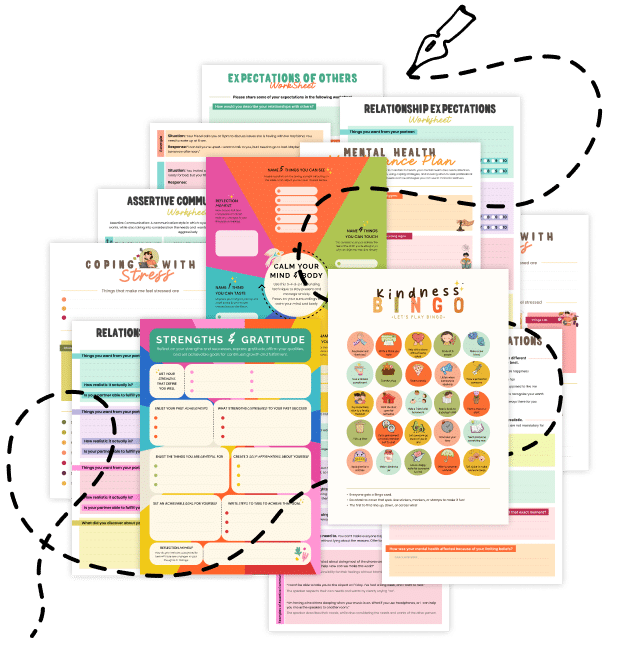20 Things About Control-Focused Coping
Enhance your resilience and stress management by exploring Control-Focused Coping—what it is, why it matters, and how it empowers you to concentrate on what you can influence. Discover strategies to reduce stress, build self-efficacy, and maintain a proactive mindset even in challenging situations.
1. What Is Control-Focused Coping?
Control-Focused Coping involves directing your efforts toward aspects of a situation that you can influence, rather than worrying about what’s beyond your control.
2. Empowering Your Mindset
Focusing on controllable elements builds confidence and fosters a proactive attitude, empowering you to take charge of stressful situations.
3. Reducing Feelings of Helplessness
By concentrating on what you can manage, you decrease feelings of helplessness and improve your overall sense of agency.
4. Enhancing Problem-Solving Skills
Control-focused coping encourages practical problem-solving, allowing you to devise clear, actionable strategies when faced with challenges.
5. Differentiating Between Controllable and Uncontrollable
This approach helps you distinguish which factors you can change from those that are outside your influence, reducing unnecessary worry.
6. Boosting Self-Efficacy
As you successfully manage aspects within your control, your belief in your own capabilities strengthens, promoting resilience.
7. Improving Stress Management
When you invest energy in controllable factors, you reduce the mental strain associated with trying to fix the unfixable, leading to lower stress levels.
8. Adaptive Coping Strategies
Control-focused coping is a flexible strategy that adapts to different situations, ensuring that you can adjust your response as circumstances evolve.
9. Integrating with Cognitive Behavioral Techniques
Combining control-focused coping with cognitive restructuring techniques can help you challenge negative thoughts and develop more balanced perspectives.
10. Enhancing Emotional Regulation
Focusing on what you can control enables you to better manage your emotional reactions, leading to calmer and more measured responses.
11. Practical Applications in Daily Life
From managing work deadlines to handling personal conflicts, control-focused coping offers practical tools for everyday stressors.
12. Support in Professional Environments
In the workplace, focusing on controllable aspects can improve productivity and reduce the stress associated with uncertainty and rapid change.
13. Promoting Healthy Decision-Making
When you focus on elements you can influence, you’re more likely to make thoughtful decisions rather than reacting impulsively to stress.
14. The Role of Self-Monitoring
Regularly assessing which aspects of your life are controllable helps you allocate your energy more effectively and avoid burnout.
15. Strengthening Resilience
By consistently addressing controllable factors, you build a resilient mindset that can better withstand adverse conditions.
16. Enhancing Goal Setting
Control-focused coping supports realistic goal-setting by encouraging you to set targets based on what you can actively work on.
17. Building a Proactive Routine
Developing habits that emphasize control and responsibility helps integrate this coping style into your daily life, making it a natural response to challenges.
18. Encouraging Self-Reflection
Reflect on your experiences to identify when focusing on controllable factors has led to positive outcomes—and learn from situations where it hasn’t.
19. Fostering a Growth Mindset
Seeing challenges as opportunities to exert control and learn new strategies reinforces a growth mindset that embraces change.
20. Related Topics to Explore
- Cognitive Load Theory – Understand how managing mental workload can optimize your performance.
- Intrinsic Motivation Cultivation – Discover ways to nurture internal drive to achieve long-term goals.
- Ego Depletion – Learn how conserving self-control can lead to better decision-making.
- Self-Handicapping Behaviors – Explore how undermining your own efforts can hinder progress.
- Self-Imposed Cognitive Limitations – Identify personal barriers that prevent you from exercising control.
Quick Tips to Boost Your Control-Focused Coping
- Identify Controllable Factors: Clearly separate what you can change from what you cannot to focus your efforts effectively.
- Set Actionable Goals: Break down challenges into small, manageable steps that you can control.
- Practice Regular Reflection: Monitor your responses to stress and adjust your strategies based on what works best.
- Stay Informed: Build knowledge about your situation to better understand which aspects you can influence.
- Cultivate a Supportive Environment: Surround yourself with resources and people who reinforce a proactive, control-focused mindset.
Embrace these insights and tips to harness the power of Control-Focused Coping, empowering you to manage stress, boost self-efficacy, and navigate life’s challenges with confidence and clarity!


